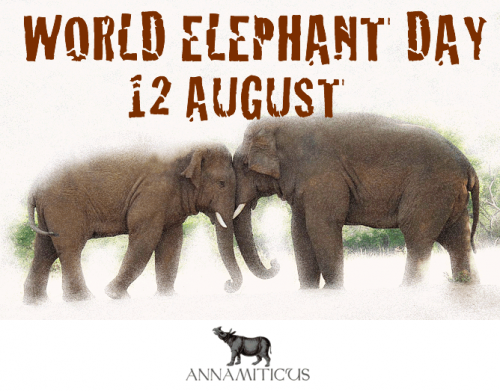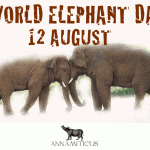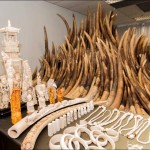
The North Carolina Zoo will mark World Elephant Day on August 12, 2014, by burning over 200 pounds (91 kg) of ivory and rhinos horns currently held at the facility.
UPDATE: With less than 24 hours to go, the ivory destruction event has been postponed.
This decision supports the view that all trade in ivory must be stopped and any trade in rhino horn must never be legalized, while bringing attention to the massacre of 30,000 elephants and more than 1,000 rhinos last year.
Dr. David Jones, director of the North Carolina Zoo, said in a statement: “Ivory is the same material as our teeth, and rhino horns the same as our fingernails.”
“We want to make the point that these animal parts should be worthless.”
Tuesday will mark the second time an ivory destruction event has been held in the United States, the first being in Colorado in November 2013.
The global movement to halt the ivory trade is supported by wildlife trade experts such as Dr. Elizabeth Bennett, Vice President for Species Conservation at the Wildlife Conservation Society. In her timely peer-reviewed paper appearing in the August 7th online edition of the journal Conservation Biology, Dr. Bennett explains that creating additional outlets for controlled legal ivory trade is “not feasible due to corruption among government officials charged with implementing wildlife-related legislation”.
“If we are to conserve remaining wild populations, we must close all markets because, under current levels of corruption, they cannot be controlled in a way that does not provide opportunities for illegal ivory being laundered into legal markets.”
Learn more about World Elephant Day at worldelephantday.org and connect at facebook.com/worldelephantday.




